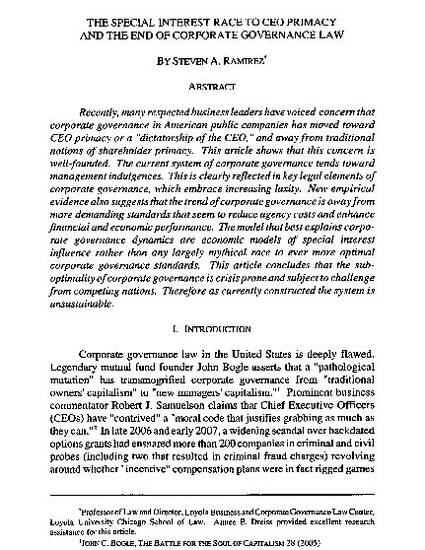
Recently, many respected business leaders have voiced concern that corporate governance in American public companies has moved toward CEO primacy or a "dictatorshipo f the CEO," and away from traditional notions of shareholder primacy. This article shows that this concern is well-founded. The current system of corporate governance tends toward management indulgences. This is clearly reflected in key legal elements of corporate governance, which embrace increasing laxity. New empirical evidence also suggests that the trend of corporate governance is away from more demanding standards that seem to reduce agency costs and enhance financial and economic performance. The model that best explains corporate governance dynamics are economic models of special interest influence rather than any largely mythical race to ever more optimal corporate governance standards. This article concludes that the suboptimality of corporate governance is crisis prone and subject to challenge from competing nations. Therefore as currently constructed the system is unsustainable.
Copyright 2007 Steven Ramirez.
